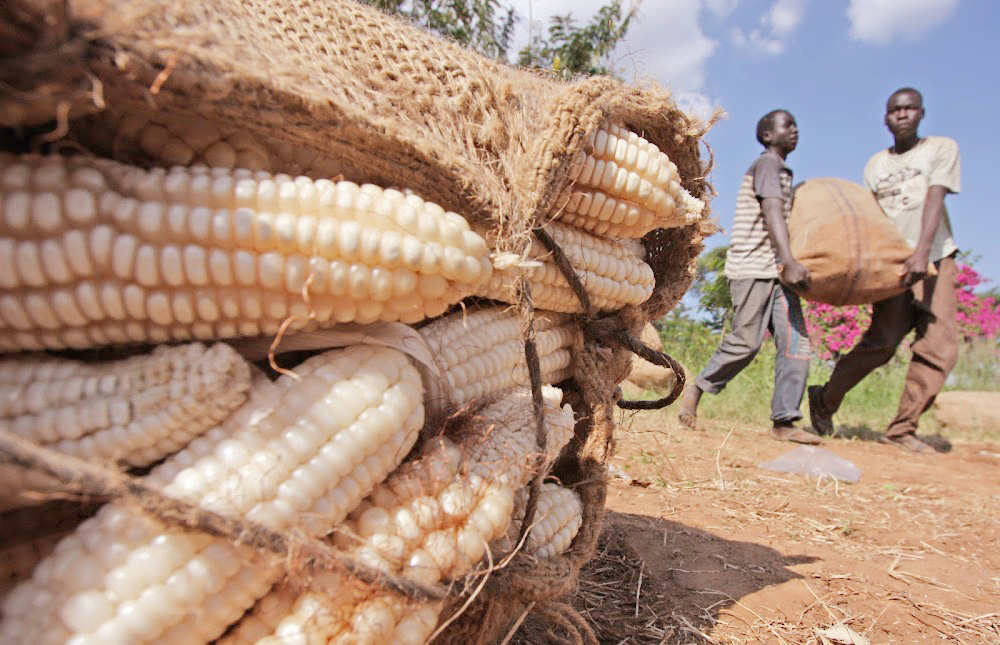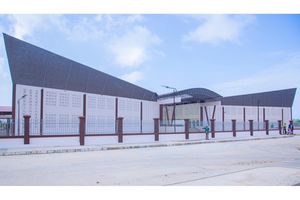Dar es Salaam public space now taken hostage

What you need to know:
- Street vendors now occupy sidewalks, pavements and open spaces in urban centres to sell their merchandise
Dar es Salaam. A number of key city streets seem to have been taken hostage by petty traders, posing safety risks all-round... To say nothing of the commercial capital’s environmental sustainability.
Street vendors now occupy the sidewalks/pavements, commuter bus stops and every open space they can land on along busy roads and intersections.
As you enter the famous Karume or Congo streets in the Kariakoo area, the places teem with these petty traders hawking everything from chewing gum to used clothing. It is next to impossible to cross from one point to another without having to walk on carriageways. This also slows down traffic as cars, motorcycles, bicycles and pedestrians must scramble for the little space there is.
It’s not easy to tell how this phenomenon developed, especially in the past two decades--does this signify an economic crisis or is it due to lack of employment?
All these could be part of the answers to the phenomenon, but for public and other public space users, these are simply a nuisance and want something done about it. In late 2016, President John Magufuli directed regional commissioners, district commissioners and city directors not to harass street vendors.
“There is no law in Tanzania that says hawkers or small business owners should not stay in the city centre… by doing this we will be creating classes of people… they should only be relocated as long as there are special areas that will facilitate their businesses,” ordered the President as quoted by media outlets.
However, the President also cautioned the hawkers: “When you engage in business, don’t erect stalls as these might tarnish the image of our towns... But you have the right to trade.”
Experts say that in most cities the urban poor survive by working in the informal sector. Poverty and lack of gainful employment in the rural areas and in the smaller towns drive large numbers of people to the cities for work and livelihood. “These people generally possess low skills and lack the level of education required for the better paid jobs in the organised sector,” says Dr Richard Msisili a youth and development expert.
He says, besides, permanent protected jobs in the formal sector are shrinking hence even those having the requisite skills are unable to find proper employment.“In 2017 I left our Rombo home in Kilimanjaro Region for Dar es Salaam in search of a job because. I’m a diploma holder in entrepreneurship,” says Frank Geofrey, a vendor along Congo Street.
“I injected a small capital to start my business, which is the reason why I’m surviving today,” added the 27-year old as he spoke to The Citizen yesterday. Hawking has been identified as the easiest way into self-employment as one only needs a small financial input and little or no skills to get started.
“I was among those who were troubled by ‘city askaris’ before the President intervened. I’m a telephone technician. This is how I earn bread for my family,” says Mathias Nchimbi.
Judging the crowds of petty traders, it is obvious they outnumber those engaged in registered retail businesses.
Now, store owners say that they cannot match sidewalk prices as street peddlers pay no rent or taxes, yet they block them from being easily accessed by customers.
“It’s a huge challenge,” says Abraham Momburi, a retailer at Kariakoo. He says his shop is now invisible because of hawkers crowded by the entrance to his premises.
“This hurts us even though we have nothing to do. We are the ones who pay taxes and we need to do business as well. It’s crucial that the authorities find places for these hawkers,” advises Momburi. For his part, Juma Moshi, a tricyclist, says he sometimes spends an hour on a 200-metre stretch due to congestion.
“Traders coming for cargo here in the city have a lot of trouble getting in and out because the roads are full of people. And unfortunately if you step on their products accidentally they attack you badly,” he says.
Omar Mohammed operates a commuter bus plying between Segerea to Mnazi Mmoja. He says there are days when he fears he would not reach Mnazi Mmoja due to congestion.
“They should have special areas set aside for them to help us and other traders,” he said.
The Citizen sought to hear from the city authorities: “There’s no other place for hawkers. The President directed that petty traders should not be harassed,” said Spora Liana, Dar es Salaam city director.





